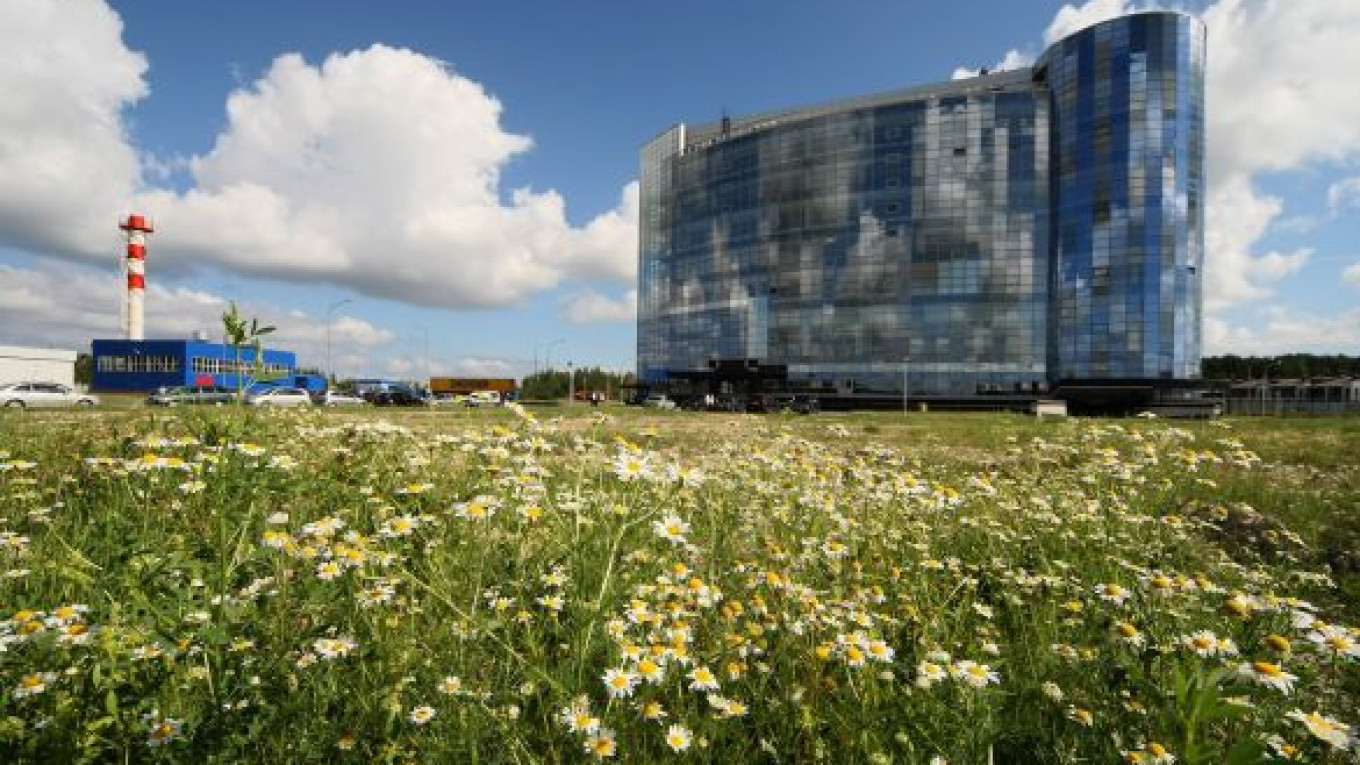The Russian government has created special economic zones across the country to attract foreign investors, and although 46 foreign companies have already taken advantage of the opportunity, not one of them is British, the head of the company managing the zones said Thursday.
Oleg Kostin, chief executive of Special Economic Zones, made the observation during the Russia Talk Investment Forum.
The annual forum, which is organized by the Russo-British Chamber of Commerce, began with enthusiastic congratulations offered to BP and Rosneft over their recent deal, but then the statements became more somber. Delegates said that there are still numerous obstacles that scare off British companies from doing business in Russia.
The special economic zones project is one opportunity they are missing out on. The zones, which began to be set up in 2005, offer benefits such as a simplified procedure for obtaining land, ready-made infrastructure, duty-free customs regimes and tax preferences, with the aim of attracting more foreign investors to the country. There are now 17 such zones across the country.
Companies from the United States and Germany are the leading participants so far. British companies are looking to start projects – three near Tolyatti and one near Ulyanovsk – but have not made any investments yet.
One of the reasons that British companies may be hesitant to invest in Russia is the negative perception of the country in the British media and among the public, experts said.
"When you come to Russia it looks much better from the inside than when you see it from the outside," said Nenad Pavletic, president of U.K.-based biopharmaceutical company AstraZeneca's Russian division.
Pavletic added that he was skeptical about the country when he was transferred here two years ago, but the experience had turned out to be "fantastic." The company has invested in the Kaluga region and plans to start manufacturing in Russian within 10 months.
Kostin's team is trying to get the same enthusiastic response from other British investors by presenting the project at international business events in different countries. He also expects to sign an agreement with the Russo-British Chamber of Commerce by the end of the year.
Prince Michael of Kent, the chamber's patron, said that relations between the countries are getting stronger.
"Recently, British companies have been especially keen to export their products to Russia as well as to invest capital in Russia," he said.
Although the forum brought together the senior management of British businesses in Russia and Moscow-based representatives of the British government, including a member of the royal family, Russian state representatives were noticeably absent from the event. First Deputy Prime Minister Igor Shuvalov and Deputy Prime Minister Arkady Dvorkovich, who were slated to attend, failed to appear and offered no explanation.
"Obviously they thought there was something more important than our event," a staff member at the Russo-British Chamber of Commerce said.
Related articles:
A Message from The Moscow Times:
Dear readers,
We are facing unprecedented challenges. Russia's Prosecutor General's Office has designated The Moscow Times as an "undesirable" organization, criminalizing our work and putting our staff at risk of prosecution. This follows our earlier unjust labeling as a "foreign agent."
These actions are direct attempts to silence independent journalism in Russia. The authorities claim our work "discredits the decisions of the Russian leadership." We see things differently: we strive to provide accurate, unbiased reporting on Russia.
We, the journalists of The Moscow Times, refuse to be silenced. But to continue our work, we need your help.
Your support, no matter how small, makes a world of difference. If you can, please support us monthly starting from just $2. It's quick to set up, and every contribution makes a significant impact.
By supporting The Moscow Times, you're defending open, independent journalism in the face of repression. Thank you for standing with us.
Remind me later.






